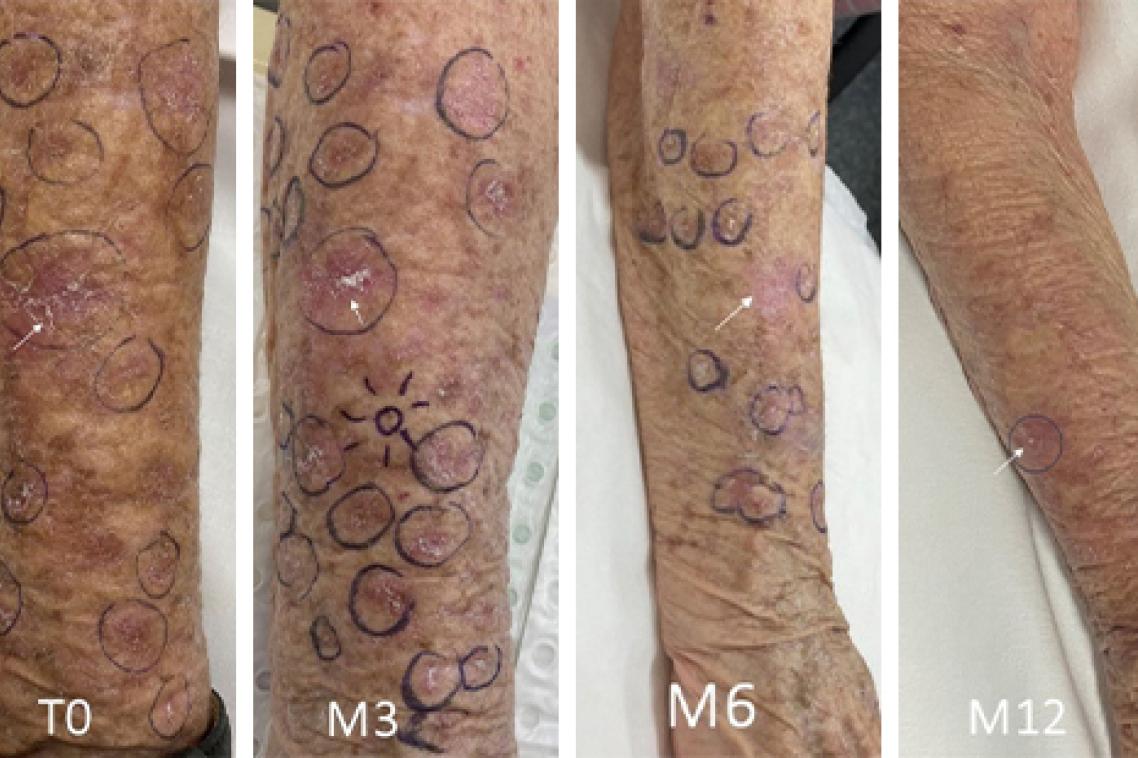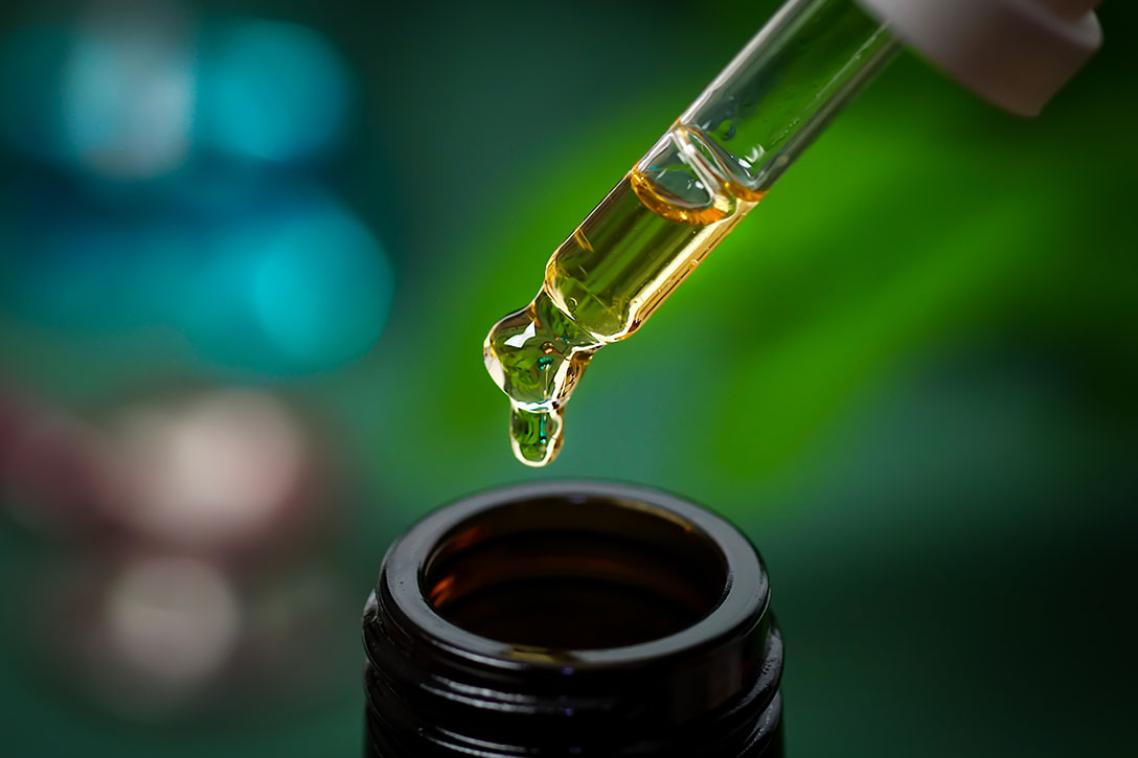Cancer immunotherapy treatment dramatically reduces sunspots

University of Queensland researchers have discovered immunotherapy, when used to treat people with advanced cancers, also helps reduce sunspots and skin cancers by at least 65 per cent.
Over 12 months, researchers monitored 23 patients receiving immunotherapy for unrelated cancers and found the treatment also targeted cancerous and precancerous sunspots of the skin – causing some to disappear completely.
Professor Kiarash Khosrotehrani from UQ’s Frazer Institute, located at the Translational Research Institute, said they monitored patients’ actinic keratoses – precancerous lesions commonly known as sunspots, and keratinocyte carcinomas – a non-melanoma skin cancer and the most common type of skin cancer.
“The number of skin lesions on patient’s forearms were counted before the immunotherapy started, and then again at 3, 6 and 12-month intervals,” Professor Khosrotehrani said.
“We found a reduction in the number of sunspots in 80 per cent of patients by 3 months, and in all patients by 12 months.
“On average there was a 65 per cent reduction in sunspots, and in one patient we saw all the precancerous lesions completely disappear.”
The patients enrolled in the pilot study were receiving intravenous immunotherapy for advanced cancers including melanoma, lung cancer, tonsillar and renal cell carcinoma.
“We suspected that immunotherapy could have an impact on these skin cancers, as we know immunotherapy stimulates the immune system, but this is the first time we’ve been able to quantify the impact and show this works in a clinical setting,” Professor Khosrotehrani said.
“This could pave the way for future clinical trials and explore other strategies to help people who are at an extreme risk of developing skin cancers, especially when other treatment or preventative options aren’t available.”
Lead author, Dr Charlotte Cox said the discovery opened the door to finding other ways to prevent skin cancer.
“Skin cancer is a big problem, it’s the most common cancer diagnosed each year and impacts two thirds of Australians before they turn 70 years old,” Dr Cox said.
“One million surgical interventions are needed every year in Australia to treat skin cancer, costing the health system $1.8 billion."
“Current therapies don’t stop new skin cancers developing on sun-damaged skin, but this research shows there might be other ways to prevent it occurring.”
The research is published in JAMA Dermatology.
Media contact
UQ Communications
communications@uq.edu.au
+61 429 056 139
Topics
Related articles

Staying physically active cuts risk of early death by 40 per cent

Medicinal cannabis is big business. But the latest clampdown won’t curb unsafe prescribing
Media contact
UQ Communications
communications@uq.edu.au
+61 429 056 139
